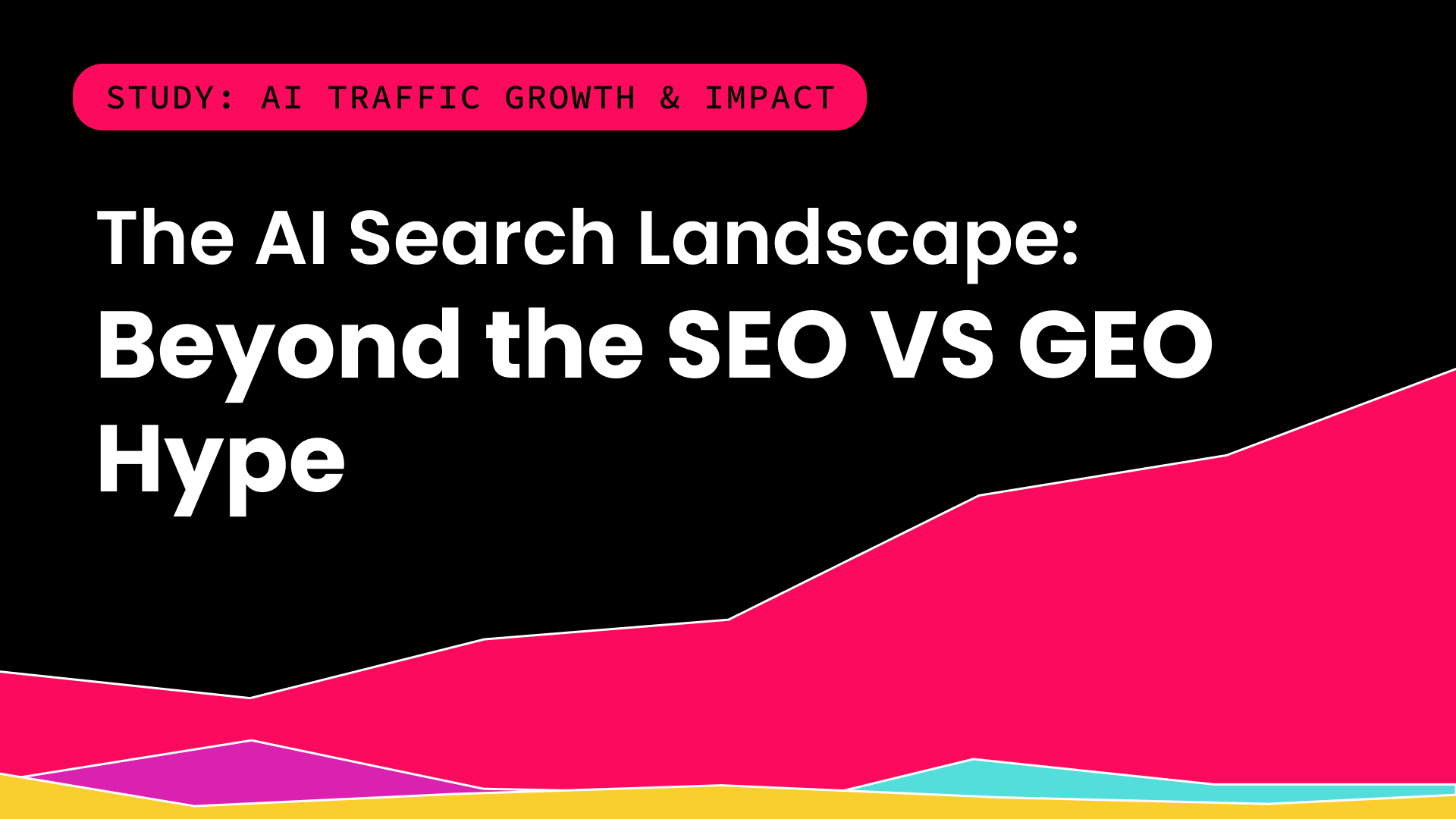Prefer to listen instead of read?
Click the play button below to listen to a narration of this article.
What is AI Content?
Automatically generated content is content that is generated using natural language processing and natural language generation. There are now many popular tools that provide AI Content.
AI Content's Role in SEO
In the past, AI Content has been used to spin up content quickly or has even been used to manipulate search engine results and is sometimes considered to be a “black-hat” SEO technique. (A black-hat SEO technique is a tactic that violates search engine guidelines.)
Today, we believe technology has advanced to such a degree that marketers must pay attention to the capabilities and understand how and when we can leverage them.
One of the most exciting new technologies to emerge within AI Content is OpenAI's ChatGPT.
“We’ve trained a model called ChatGPT which interacts in a conversational way. The dialogue format makes it possible for ChatGPT to answer follow-up questions, admit its mistakes, challenge incorrect premises, and reject inappropriate requests.”
The potential for integrating ChatGPT into a digital marketer’s tech stack is very exciting. Clever marketers are using ChatGPT in all kinds of ways, including creating RegEx formulas, summarizing site changes from the Wayback Machine, and more. Check out Aleyda Solis’ post here for 20 Ways to Leverage ChatGPT in Your SEO Activities. In this POV, we’ll focus on how we believe ChatGPT can be leveraged for content creation.
AI Content and Google: Will I be punished for leveraging AI Content? Google, specifically, John Mueller, says that AI-generated content would fall under the “automatically generated content” umbrella (i.e. spam) and would “still be against webmaster guidelines”. This specifically refers to content created by AI technologies without being edited by humans.
Can I use AI-Generated Content as-is?
Some AI-generated content seems decent enough to use without review, however, Seer recommends against it. Simply feeding AI tools a topic and publishing the output without human review could produce shallow content that could leave websites susceptible to penalties. Currently, we believe AI tools work best as supplemental tools to help convey and bolster content ideation, not completely replace human thought and experience. AI tools can be leveraged to generate content more efficiently and effectively if used correctly, but we are far from a future where we can remove humans from content creation.
Can Google Detect the use of AI-Generated Content?
A large portion of Google’s model is the caching of information. It gets better and better every day and in regard to content search engines, specifically, Google is able to detect quality. If you’re considering AI-generated content, it’s important to remember that quality and writing for your users are key.
- Content should be natural and make sense, not just including search keywords
- Human review, including supplementing with unique insights, is critical before publishing any kind of content
- Try not to generate large amounts of content in one sitting
Also note, Google recently updated their quality rater guidelines to reflect an extra “E” within “E-A-T.” The moniker is now “E-E-A-T” which stands for Experience, Expertise, Authoritativeness, and Trustworthiness. What could Google be hinting at by making this statement? We believe that content coming from a place of experience and unique value is more important than ever, which cannot be provided by using AI Content as a single-step process.
How should we use AI-Generated Content today?
Seer is testing a few ways we can leverage these systems to drive better performance for our clients. We are nascent in our testing, but here are a few concepts to consider:
- Take advantage of the ability to add depth to requests. Consider how easy it would be for your competitor to create the same exact content outline. To combat this, apply a layer of your brand promise, unique POV, target audience, or another unique qualifier to your ChatGPT queries.
Bad Example: Write a blog post about how to do keyword research.
Good Example: Write a blog post about how to do keyword research in a data-driven way, leveraging insights from paid search data. Make the post conversational and for an executive audience. - Test, then Operationalize. Folks are very excited about the potential to scale content creation with AI Content. Our recommendation is to test first. If you’re using an established service like Jasper, see how the product can integrate with your current copywriting process. A/B test time to publish. Establish a quality rubric to review outputs. Play around with different models in order to find a concept that works best for you and allows you to truly measure efficacy.
Note that ChatGPT is free for now, but won’t be forever. We aren’t exploring opportunities to operationalize the capabilities of ChatGPT until we know more about what their fee structure will be. - Know the Limits. This new technology is a starting point or a supplemental lever to pull to create great content faster. Don’t get greedy. Google ultimately wants to reward brands that create the best, most unique, and most valuable content. That won’t come from any current AI Content provider. That said, that doesn’t mean avoiding the tools altogether: These technologies will likely become as standard to the SEO process as keyword research. They are a powerful means to an end, but not the end game.
In Conclusion
We believe in 2023, AI will become integrated into our tech stack in more ways than one. Savvy marketers will figure out how to leverage this new tool to their advantage, and you should too. Think beyond the potential for quick-win, high-risk content creation and instead try to imagine how we can use this incredible tool to increase efficiency in all kinds of different SEO processes. As economic concerns loom, the need to do more with less will only continue. Leveraging tools to work smarter, not harder, will continue to provide your team with an advantage.
Reach out to us to see how Seer can support your SEO program.

.png)
